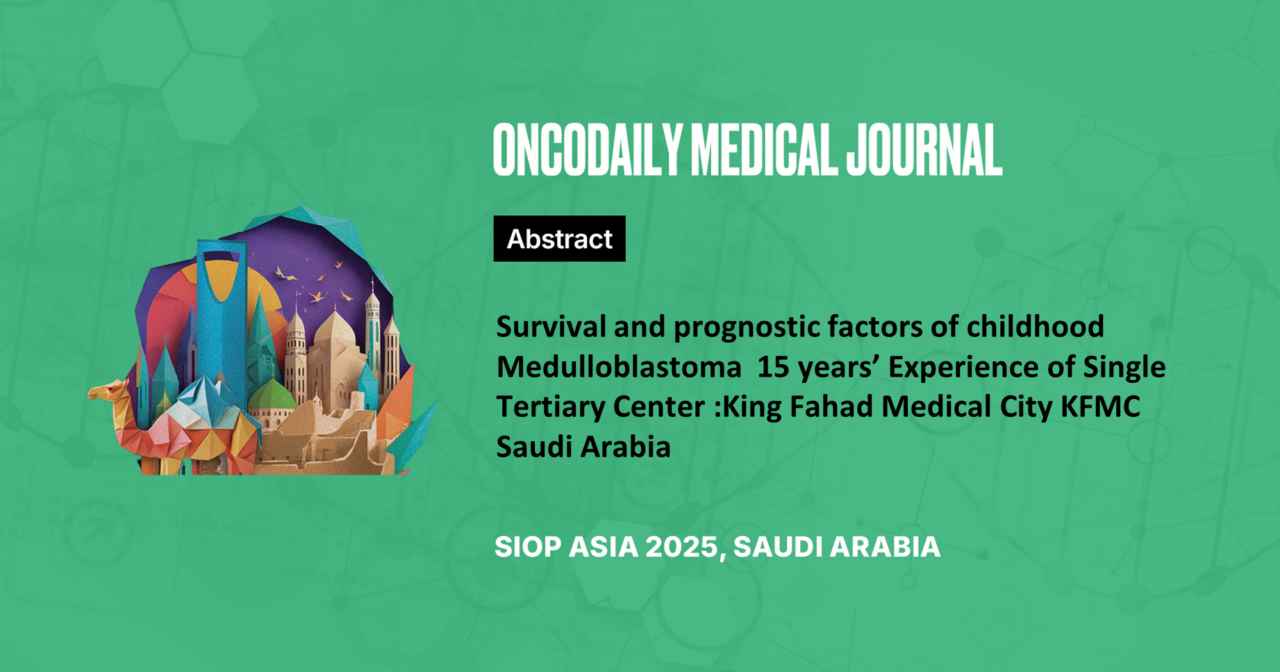Survival and prognostic factors of childhood medulloblastoma 15 years’ experience of Single Tertiary Center: King Fahad Medical City KFMC Saudi Arabia
Abstract
Introduction: Medulloblastoma (MB) is the most common childhood malignant brain tumor treated with intensive multimodalities therapy including Surgery, Craniospinal CSI Radiation, and chemotherapy. Our study aims to document the clinical courses, prognostic factors, and survival outcomes in children with MB above three years old treated in KFMC.
Methodology: This is a retrospective analysis of MB patients diagnosed between January 2007 and January 2022. ALL patients received risk-adapted CSI radiotherapy, which was given concurrently with oral etoposide. Patients were treated with 2 different Maintenance chemotherapy protocols.
Results: We identified 150 MB patients 67.3 % were male, median age at Diagnosis — years (range 3 -years), Classic histology was predominant ( 80.7%), with 63 cases having molecular testing for MB molecular subgroups. 41.3% of patients had metastatic disease at presentation. 52% were treated as High-Risk HR MB and 48% Average Risk AR MB. 9 Patients 6% developed Second neoplasms with a median time of 6 years(range 3-13) post-diagnosis. The Median time to start radiation therapy after surgery was 35 days.
Multivariate survival analysis showed that progression-free survival was significantly affected by the extent of surgical resection, CSF positivity, TP53 positivity, and Metastatic MB at diagnosis. At the Median follow-up of 7 years, the 5-years Progression-free survival PFS and overall survival OS for the whole cohort were 70.7% and 72.1% respectively. the 5-years PFS for AR MB and HR MB was 79.2% and 62.8% respectively. PFS analysis based on the molecular subgroup: WNT subgroup 92.3%, SHH 66.7%, Group 4: 50.0%: and Group 3: 41.7%.
Conclusion: Our study is the largest analysis of childhood MB treatment outcomes in Saudi Arabia Defining the poor prognostic factor for these patients and will form the baseline for future pediatric Neuro-Oncology studies which may help to improve the outcome of childhood MB in Saudi Arabia.





